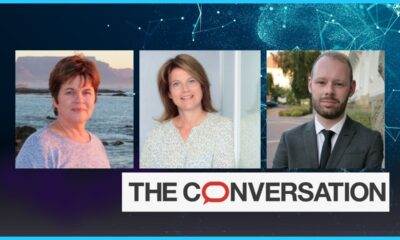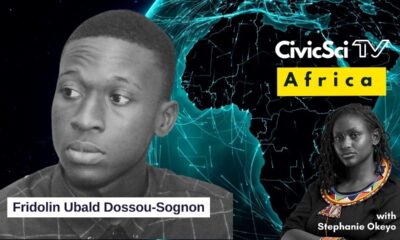Stories in Science Special Series
The PhD Delusion
My parents were still on cloud nine about their daughter having finished a PhD at a highly-ranked university, doing ground-breaking research on cystic fibrosis. They were talking about it as if I had been on a wonderful, noble mission which would – in the long term – save and enrich lives.

Karin Bodewits
[su_boxbox title=”About” box_color=”#262733″]Dr. Bodewits is the author of the campus novel ‘You Must Be Very Intelligent – The PhD Delusion (Springer Nature, 2017),’ and speaker/co-founder of NaturalScience.Careers. You can visit her website at www.karinbodewits.com and follow her on Twitter or LinkedIn [/su_boxbox]
[dropcap]M[/dropcap]y parents are sitting opposite of me at an authentic ceramic table. We are in their new garden. They moved into this urban environment quite recently, leaving behind the economically dead village in which I was raised. They rather like it here. We drink wine and talk, about their new neighbours, their jobs, my travelling, the economic crisis…. Suddenly, my mother announces:
“We organised a party to celebrate your PhD graduation.”
I felt my eyes enlarge, my body stiffen and I pressed my hand to my mouth to keep the wine inside while I swallowed with effort. Then I burst into uncomfortable laughter.
“Why on Earth would you want to celebrate that?” I blurted out.
My mum looked surprised.
“Well, it’s worth a celebration, isn’t it?”
Almost four years earlier I had graduated with an MSc degree in molecular biology, with good marks, and I had started my PhD in biochemistry at the University of Edinburgh, like a good girl. At the time I truly believed that researchers in the ivory tower were idealists driven by the desire to make the world a better place through the advancement of knowledge. My faith in the university system, as the crucible of meritocratic refinement, was absolute: only the extremely knowledgeable and wonderfully intelligent would ever hold chairs and professorships. If you are not smart enough you would have to leave.

Karin Bodewits
I believed in the goodness of people, I believed in the goodness of the ivory tower. I was ambitious and energetic, manically driven with the desire to become a scientist. I saw professors as intellectual role models. I would follow their path, as far as I could…
I even still remember the first day parking my bike in front of the Chemistry Department, standing face to face with a statue of Joseph Black, a big cheese Scottish physician of the 18th century. While staring at the mouldering face covered with traces of moss, I thought, “Well done dude, you made it!” Tingles of excitement and streams of adrenaline charged through my body that day…
But four years later, in my parents’ garden, that seems like another person in another life. I was a disillusioned and defeated doctor now, without any future plans, to whom a degree from a famous university meant marginally less than a Girl Guides’ camping badge. I was drained and bored, run-down physically and spiritually. I felt useless and asked myself over and over again how my presumptions about the PhD could have been so naïve.
But for the first six months, I felt as welcome in the lab as Mussolini at a reggae festival.
My parents knew little about my PhD. They are not scientists so we never really discussed my work. They knew that on the first day of my PhD it turned out that I did not have a desk or a computer- which even they were incredulous at. They also knew that I had a domineering supervisor. But my parents remained unaware of the full grimness of the situation – and were oblivious to my lack of research results.

On the upper floors, however, the labs were less fancy; ours perhaps being the poorest of all. It was a dump. There were chemicals, eppendorfs, tubes, ice buckets, flasks, paper towels and unused old equipment everywhere, like an ‘all-gone-wrong’ teeny party. We worked with far too many people in a far too small space, and we tried to get by with out-dated, inefficient, old hand-me-downs, much of which even Marie Curie would have called antique. That very basic equipment triggered a Boy Scout instinct, which I somehow liked, but at times it felt liked we were stuck behind the east side of the Iron Curtain smelling the bananas of the big shots one floor down.
But how could my parents know? I didn’t know that the rigidity of academic hierarchies would make Medieval Japan look like a hippie commune, and this would be writ large in the size of the lab and the equipment therein… And if you were conducting unfavoured research in an unfavoured lab, it would be made plain to you on a daily basis that, in science, you ranked somewhat lower than the slime on a snail’s belly.
They didn’t know that I was sharing a tiny office – that would just fit a small car – with nine PhD students, a postdoc and several undergrads, like chickens in a battery cage. Not all of our grants had money for consumables, and the resultant financial stress was compounded by a nasty element of interpersonal power-plays. The atmosphere in our lab was cold and broken. Though things improved over time, and afterwards I came to appreciate I had known some talented colleagues who could grace the finest labs in the world. But for the first six months, I felt as welcome in the lab as Mussolini at a reggae festival.
My parents didn’t know that my boss wasn’t a mentor, as I expected him to be. They had no way of knowing he was a foul-tempered, unpredictable megalomaniac whose mood might swing on football results. At least he supported a good team, and not one that mostly lost; for such small mercies we had to be grateful.
They didn’t know that I was never even asked what drives me. My supervisor never showed the faintest hint of interest in the person carrying around four limbs, two of which could hold a pipette. It was other professors who helped me finish my degree, not him. I think my parents never realised how it felt to work for him and be dependent on him for all those years.
They didn’t know how I struggled with failure after failure, being tossed from one research project to the next, without ever seeing any light at the end of the tunnel.
They didn’t know that this was a world where unreachable glory was the goal and desperation was the order of the day.
They knew I saw a world of collaboration of course, but they didn’t know I saw a world of brutal backstabbing. Or that the conferences I attended were mere talking shops, where discussing unpublished results – to advance the greater good of humanity – would bring punishment.
They didn’t know that it was a world where integrity was regularly slaughtered on the altar of financial desperation.
They didn’t know that research theft was unremarkable, and career advancement can be based entirely upon getting your name onto a paper… possibly for your great contribution, possibly as an entirely unmerited act of back-scratching.
They didn’t know that I had a profound lack of research results, Daily, I witnessed my life as a researcher go down the drain. My self-confidence dropped like a meteorite hitting Earth.
But they also didn’t know that ultimately, I had been lucky. That I got protected by a proper UK PhD system; a system in which supervisors are not handling their PhD students alone. That I had been at a university that put a lot of pressure on the PIs to let students finish within four years. That I had been protected from eternal PhD life; a protection not all students have.
That I had been lucky because I had met many hilarious personalities in the ivory tower. That those characters made me feel like sitting in a slapdash sitcom set and made me smile every single day. That I knew exactly which lab had the best coffee machine or the best espresso. That the last year of my PhD I mainly spent in the pub. That I made friends for life. And that I met good, beautiful intelligent lecturers and professors who fought hard on my behalf. People with the door wide open…People other PhD students in similar situations might not meet…
And, that I had been lucky to have a passion for writing. That Springer Nature invited me to write my story down. That I cried, but also laughed writing every single chapter of the book that followed. That my novel would close some doors but would open many more. And that today, – a few years later -, I feel proud of what I achieved.
But that day in my parents´ garden… My parents were still on cloud nine about their daughter having finished a PhD at a highly-ranked university, doing ground-breaking research on cystic fibrosis. They were talking about it as if I had been on a wonderful, noble mission which would – in the long term – save and enrich lives. I knew my dad would beam like a Cheshire cat whenever someone enquired what his daughters were doing. They probably did not have to enquire; he always contrived opportunities to brag about us as children. He is, like any good dad, embarrassingly proud of us. How could I tell him his youngest daughter, who just graduated with a PhD, has not generated one remotely significant result, nor learned anything scientifically useful, but had discovered that her passionate faith in the education system had been pure folly?
For them the title was still worth something; the two letters I had once craved made them proud. I have a PhD. I am a doctor – though that day in the garden I felt much closer to a tormented lab rat that survived against the odds.
I looked my mother in the eyes and said, “Okay, let’s have a party.”
Metrics
Sessions
Total number of Sessions. A session is the period time a user is actively engaged with the page.
Visitors
Users that have had at least one session within the selected date range. Includes both new and returning users.
Page views
Pageviews is the total number of time the article was viewed. Repeated views are counted.
The CS Media Lab is a Boston-anchored civic science news collective with local, national and global coverage on TV, digital print, and radio through CivicSciTV, CivicSciTimes, and CivicSciRadio. Programs include Questions of the Day, Changemakers, QuickTake, Consider This Next, Stories in Science, Sai Resident Collective and more.

-
 Audio Studio1 month ago
Audio Studio1 month ago“Reading it opened up a whole new world.” Kim Steele on building her company ‘Documentaries Don’t Work’
-
Civic Science Observer1 week ago
‘Science policy’ Google searches spiked in 2025. What does that mean?
-
Civic Science Observer1 month ago
Our developing civic science photojournalism experiment: Photos from 2025
-
Civic Science Observer1 month ago
Together again: Day 1 of the 2025 ASTC conference in black and white
Contact
Menu
Designed with WordPress

























